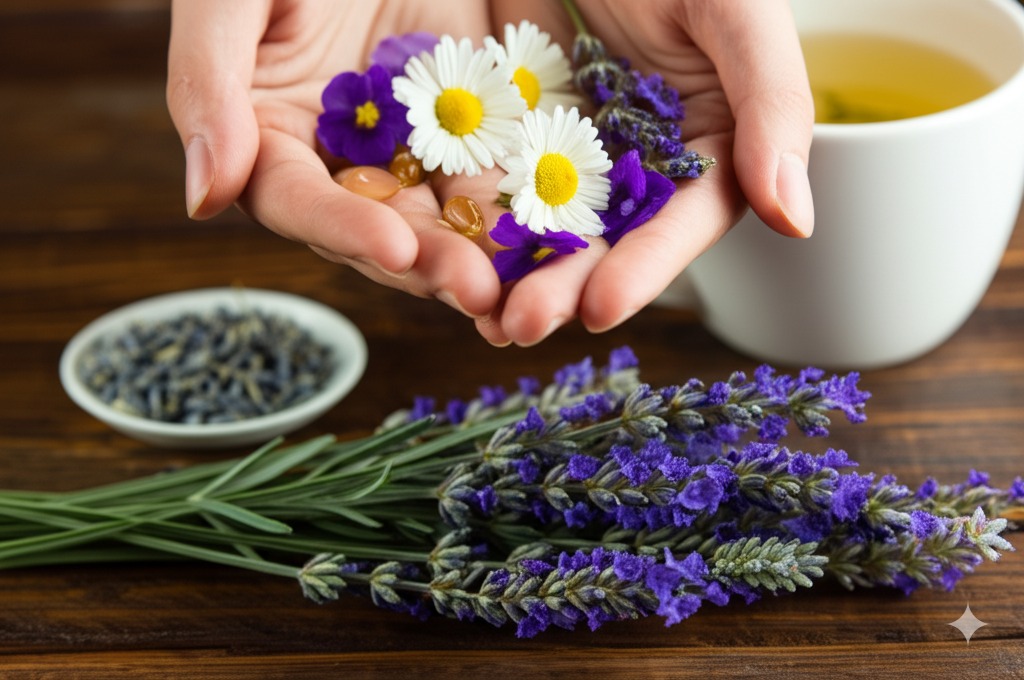Natural Sleep Aids: What Works and What Doesn't?

As discussed previously, melatonin is a hormone your body produces naturally to regulate the sleep-wake cycle. Supplements can be effective for:
- Jet lag
- Delayed sleep-wake phase disorder
- Some sleep issues in children with neurodevelopmental disorders (under medical guidance).
Considerations: Less effective for general insomnia. Dosage and quality vary. Start low (0.5-1mg). Consult a doctor before use.
Valerian Root
Valerian is an herb often used in sleep supplements. Some studies suggest it might help improve sleep quality and reduce the time it takes to fall asleep, possibly by increasing levels of GABA (a neurotransmitter that calms nerve activity). However, research results are inconsistent.
Considerations: Generally considered safe for short-term use, but can cause side effects like headache, dizziness, and stomach upset. Quality and dosage vary widely. May take several weeks to see effects.
Magnesium
This essential mineral plays a role in many bodily functions, including nerve function and the regulation of neurotransmitters involved in sleep, like GABA. Some studies, particularly in older adults or those deficient in magnesium, suggest supplementation might improve sleep quality, duration, and reduce insomnia symptoms.
Considerations: More research is needed for general populations. High doses can cause digestive issues. It's often better to increase intake through diet (leafy greens, nuts, seeds, whole grains).
Lavender
The scent of lavender is widely used for relaxation. Studies on lavender aromatherapy (using essential oils) suggest it may help reduce anxiety and improve sleep quality, possibly by calming the nervous system. Evidence for oral lavender supplements is less robust.
Considerations: Aromatherapy is generally safe. Use essential oils diluted in a carrier oil or via a diffuser. Oral supplements may have side effects and interact with medications.
Chamomile
Chamomile tea is a popular traditional remedy for relaxation and sleep. It contains apigenin, an antioxidant that may bind to certain brain receptors promoting sleepiness. However, high-quality human studies specifically on chamomile for insomnia are limited and show modest, if any, effects.
Considerations: Generally safe as a tea. May cause allergic reactions in those sensitive to related plants (like ragweed). Its effect might be more related to the relaxing ritual of drinking warm tea than the herb itself.
Glycine
Glycine is an amino acid that acts as an inhibitory neurotransmitter in the brain. Some small studies suggest taking glycine before bed may help lower core body temperature (which aids sleep onset), improve subjective sleep quality, and reduce daytime fatigue after sleep restriction.
Considerations: More research is needed. Generally well-tolerated. Found naturally in protein-rich foods.
Cannabidiol (CBD)
CBD, a non-psychoactive compound from the cannabis plant, is often marketed for sleep. While it may help reduce anxiety or pain, which can indirectly improve sleep, direct evidence supporting CBD as a primary treatment for insomnia itself is currently lacking and inconsistent.
Considerations: Quality and dosage vary greatly. Can interact with other medications. Legality varies by location. More research is needed.
Important Caveats
- "Natural" Doesn't Always Mean "Safe": Supplements can have side effects, interact with medications, and may not be safe for everyone (e.g., during pregnancy).
- Lack of Regulation: The supplement industry is not tightly regulated, leading to inconsistencies in product quality, purity, and dosage.
- Consult a Professional: Always talk to your doctor before trying any new supplement, especially if you have underlying health conditions or take other medications.
While some natural sleep aids show promise, especially melatonin for specific circadian rhythm issues, many lack strong scientific backing for general insomnia. Often, the most effective "natural" approaches involve improving sleep hygiene and addressing underlying issues through behavioral therapies like CBT-I. Always prioritize safety and consult with a healthcare provider before self-treating with supplements.



